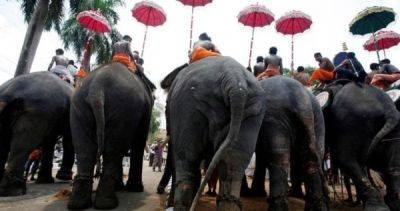Why is an Indian state punishing live-in relationships?
Couples must register with the government, or risk going to jail. That’s in a law, which critics say is also part of the ruling BJP’s attempts to push its Hindu majoritarian agenda.
New Delhi, India – The northern Indian state of Uttarakhand on Wednesday passed a law that enforces a uniform set of rules for civil relationships — including marriage, divorce and inheritance — across all religions and makes the registration of live-in relationships mandatory.
The legislation has sparked concerns among several critics over both its provisions and what some view as a larger political project in the works, driven by the Hindu majoritarian approach of Prime Minister Narendra Modi’s Bharatiya Janata Party, which also rules Uttarakhand.
Activists have raised an alarm against the provisions to punish live-in relationships that are not registered with the government. They say that it represents an intrusion by the state into the private lives of citizens.
Meanwhile, Muslim leaders have accused the BJP of trying to push through an agenda to impose what they say is effectively a “Hindu code” disguised as a uniform civil code on other religious groups, who are currently allowed their own rules on marriage, divorce, adoption and inheritance.
Pushkar Singh Dhami, the chief minister of Uttarakhand, has rejected the allegations that the new bill was against any particular religion. Yet, the timing of the new law — weeks before India votes in national elections between April and May — has triggered speculation over whether it would serve as a template for similar legislation in other states ruled by the BJP.
Hindu right-wing groups have campaigned for decades against the provision of separate personal laws for religious minorities.







